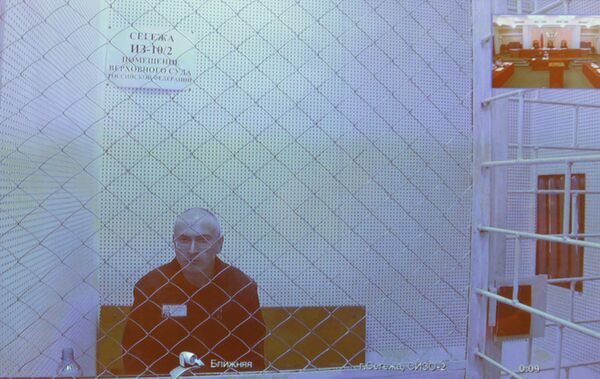MOSCOW, August 6 (RIA Novosti) – Russia’s top court on Tuesday ruled to reduce the prison terms for the jailed former head of oil giant Yukos Mikhail Khodorkovsky and his former business partner by two months.
Considering their defense’s appeal for immediate release, Russia’s Supreme Court ruled to cut their sentences by two months to 10 years and 10 months.
Khodorkovsky's jail term will now end in August 2014 and that of his business partner Platon Lebedev in May 2014.
Their defense said it would appeal again for their immediate release.
Lebedev has already spent ten years and one month in jail, and Khodorkovsky has been behind bars for nine years and eight months, RAPSI legal news agency reported.
The two men were originally charged with fraud and tax evasion in 2004 and convicted the following year. Then, in a new case, a Moscow district court sentenced them to 14 years in prison on fraud and embezzlement charges in 2010.
In December 2012, Moscow City Court cut their sentences to 11 years, meaning they are due to be released in 2014.
Khodorkovsky joined Tuesday's hearing via video link from prison in the northwestern Republic of Karelia, and asked the panel of judges to cancel the verdict that he considers illegitimate.
“Unfair court decisions have already become one of the main detonators for protests,” Khodorkovsky said, referring to the spate of anti-Kremlin demonstrations that have happened since the end of 2011.
“The demands of an ever greater part of society can be boiled down to Solzhenitsyn’s ‘Live Not By Lies,'” he said, citing the title of Nobel-prize winning dissident Alexander Solzhenitsyn’s 1974 essay to the Soviet people.
His legal team made the full transcript of his speech available online on its website in Russian and English.
Khodorkovsky, once Russia’s richest man, and Lebedev were first arrested in 2004, tried on linked fraud and tax evasion charges and convicted in 2005. The legal action against the two businessmen became one of that decade’s most high-profile legal cases in Russia, and was widely criticized by human rights groups. The guilty verdict in 2010 has been denounced by prominent legal experts and lawyers as far more controversial than the charges brought in the first case.
Khodorkovsky’s supporters have maintained that the charges were the Kremlin’s revenge for his political and business ambitions. This has been repeatedly denied by the country’s leadership.
Last month, The European Court of Human Rights (ECHR) in Strasbourg held that the 2004 charges against Khodorkovsky and Lebedev were brought in accordance with the law, but that the authorities had violated their rights during and after the trial, including by sending both to remote prison facilities.
Updates earlier version of the story with quotes and background


